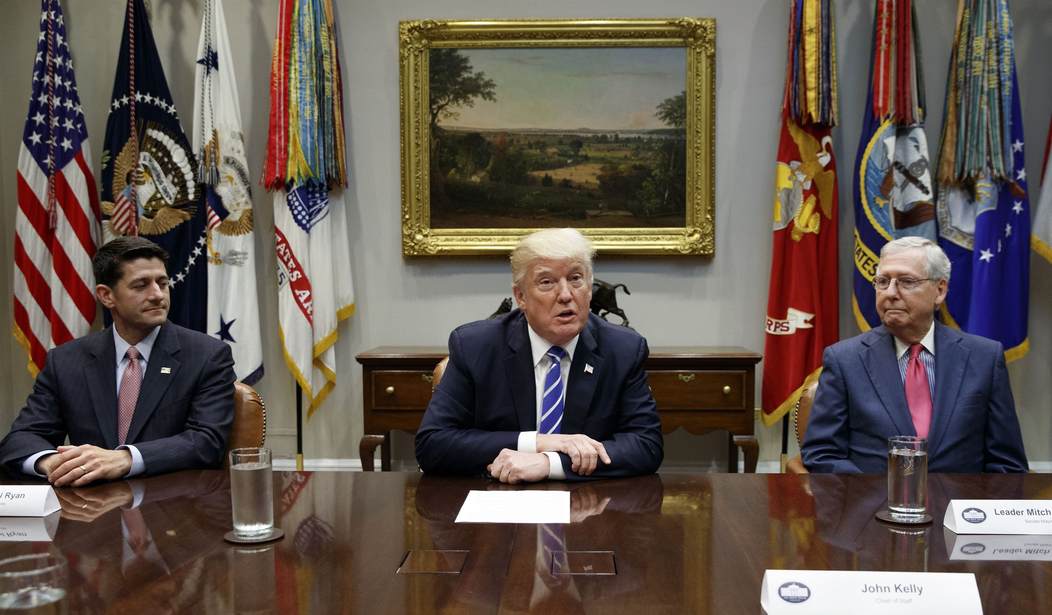This week, Republicans in the Senate finally passed their long-awaited tax reform plan. It lowers individual income tax rates across the board, although it does claw back some government revenue in the form of elimination of state and local tax deductions. It drops corporate tax rates as well. It is, in other words, a significant but not atypical Republican tax cut designed to boost economic growth by allowing Americans to keep more of their own money.
The tax cut will almost certainly increase the deficit, however. Even with dynamic scoring -- the assumption that the economy will grow at a faster clip thanks to tax cuts -- the tax cuts could lead to $1 trillion in lower revenue through 2027. This has led some conservatives to sour on tax reform altogether, rightly saying that Republicans were, until a few months ago, complaining incessantly about former President Obama's blowout deficits and the burgeoning national debt, which now stands at a cool $20.5 trillion. That doesn't include long-term unfunded liabilities, which are slated to bring the debt to some $70 to 75 trillion in coming decades.
So, which is more important: cutting deficits or cutting taxes?
The answer, in the long run, is obvious: cutting deficits. Deficits impoverish future generations; they undermine the credibility of our financial commitments; they prevent us from fulfilling promises we have already made to our own citizens. There are already millions of Americans who will never receive Social Security in the amount they have been promised; there are already millions of Americans unborn who will spend their lives paying off the commitments made by others for political gain.
Recommended
At the same time, were we to raise taxes to pay off our debts, we would enervate our population and inure citizens to high taxes. Citizens of European states are used to insanely high tax rates; the impetus for spending cuts based on desire for lower taxes disappears after years of habituation to those tax rates and unsustainable government benefits. Europeans are used to the very social programs that continue to bankrupt them despite high tax rates; they're not clamoring to cut programs based on their distaste for those tax rates.
This puts American politicians in somewhat of a Catch-22. If they stump for spending cuts, they're cast as uncaring and cruel; if they stump for tax increases to pay for those spending cuts, they're cast as uncaring and cruel. Thus, the deficit continues to grow.
So, what should Republicans do about it? They ought to cut taxes, and then they ought to acknowledge that cuts are necessary to keep taxes low. Let Americans get used to keeping their own money. Let them understand that services aren't free. Then, be honest about the costs associated with big government programs.
In the end, both Democrats and Republicans will have to face a simple truth: It's either government cuts or bust. There's no reason for Republicans to give away their only leverage -- the taste of the public for a dynamic economy based on individuals retaining their earnings -- in order to shore up programs Democrats will only work to expand.

























Join the conversation as a VIP Member